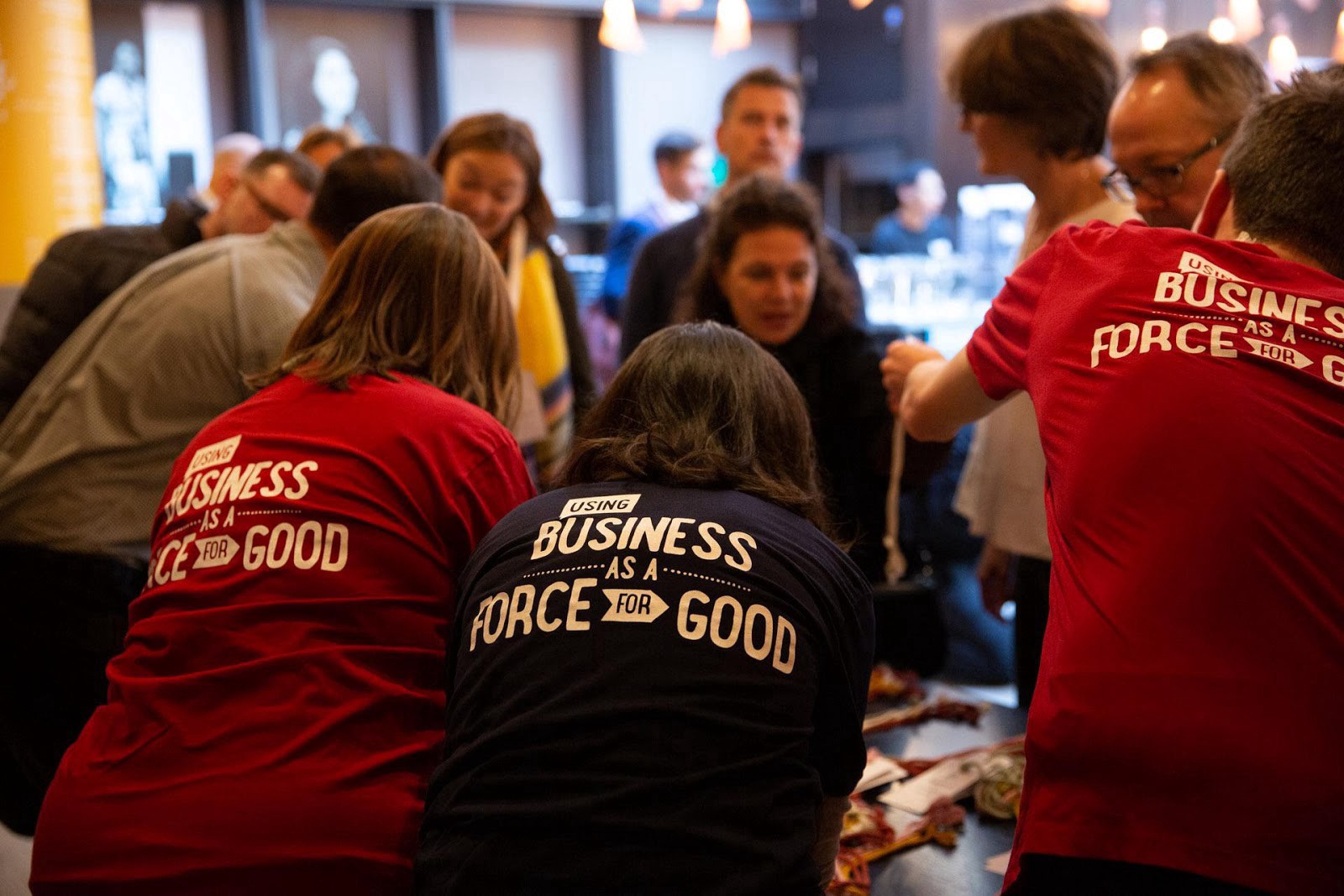UK B Corps Address the Climate Emergency – Law Firm Bates Wells Joins in the Collective Effort to Act Now
When Angela Monaghan, Bates Wells operations manager, attended B Inspired London, she was struck by Patrick Pichette’s words on empowering those around us by leading by example.
With the climate emergency looming large in the day’s discussions among the more than 600 who gathered for B Inspired in October 2019, the idea that we as individuals and businesses can create positive change by “walking the talk” resonated.
Certified B Corporations in the UK are putting this idea into action by declaring a climate emergency. The B Inspired event provided an excellent forum to share ideas on how businesses can tackle these challenges. We found ourselves part of a trusted network of businesses working toward a solution. The mood was inspiring and optimistic — businesses united by the belief that change is both possible and necessary.
At Bates Wells, we have made a formal and public commitment to act on the climate emergency. We did this to acknowledge the seriousness of the climate crisis and take action. We believe it’s crucial that businesses acknowledge the severity of the climate breakdown and commit to a changed approach. Carrying on with business as usual while making incremental shifts toward greener practices is simply not going to deliver the results we need in time.
Our firm is structured as a partnership, meaning that each of our 41 partners needs to feed into any major decision. Before we made our public announcement, we consulted and debated in detail what it would mean for Bates Wells. We concluded that, from both an ethical and a business point of view, committing to action was the only approach that made sense.
 Bates Wells works with Print Releaf to plant trees to offset its office printing. Photo Credit: B Corps.
Bates Wells works with Print Releaf to plant trees to offset its office printing. Photo Credit: B Corps.
Acting Internally
As a B Corp, our impact on the environment is a key focus for us. Over the last three years, we’ve made changes to how we run the business and we’ve reduced our carbon footprint significantly. Here are some of the actions we’ve taken so far:
- Keeping office waste out of the landfill and working with Print Releaf to plant trees to offset our printing.
- Looking to our suppliers to see how they measure up in terms of sustainability. We’ve created a supplier code of conduct, outlining our expectations — including that they lower their emissions and commit to taking action on the climate emergency. We’re also circulating a questionnaire to all of our bigger suppliers asking for their climate credentials. We’ll be using their answers when the time comes to retender.
- Encouraging staff to use sustainable travel to get to meetings by paying for any bike hire service they choose.
However, there’s a lot more to do, and we’ve committed to reducing our scope 1 and scope 2 carbon emissions to net-zero. This has involved reducing where we can and offsetting where we can’t. We buy all our offsets from fellow B Corp Climate Care.
 Bates Wells workers are encouraged to cycle to meetings and are reimbursed for cycle services they use. Photo Credit: B Corps.
Bates Wells workers are encouraged to cycle to meetings and are reimbursed for cycle services they use. Photo Credit: B Corps.
We’re a law firm, so we also plan to use the law itself as a tool to protect the environment and improve matters where we can. For example, we’ve been collaborating with several groups within the divestment movement. We’re working with the Impact Investing Institute to look at how the fiduciary duties of trustees can be made to account for social impact as well as a financial return.
Taking action also means acknowledging the existential threat of climate heating — and related dangers like biodiversity loss — and considering this in all future decision making and activities. We’re developing a new business strategy, and the climate emergency will shape our governance structure significantly.
All climate actions will feature in our new strategy as specific objectives with timescales and associated reporting. We’ll also be looking at expanding the work we do for environmental clients and considering whether there are new service lines we could offer in this field. And we plan to work collaboratively with other organizations in addressing what this means for us, the legal sector, and the wider UK business community so that we can share best practices and together have a greater impact.
Advancing Progress
We’ve already set up climate emergency working groups to advance our progress in several areas. Each group has a different focus:
- People and practice look at activities that we can take to make us, as a firm, more sustainable and what behaviors we need staff to adopt to create change.
- Strategy is about how we as a firm build our commitments and passion into our strategic plan.
- Law as a force for good explores how we can use the law to protect the planet.
- Collaboration encourages working across boundaries to help us and others achieve our environmental goals.
Of course, there are challenges. We worked to neutralize both our direct carbon emissions and the indirect emissions from our heating, cooling and energy use (better known as scope 1 and 2 emissions) by the end of 2019. But our scope 3 emissions are less straightforward, so we’re working with the Legal Sustainability Alliance and doing research to investigate how best to reduce these in 2020.
B Inspired highlighted the key role that conversation and collaboration can play. Only in working together and leading by example can we build the momentum needed to create lasting change.
EDITOR’S NOTE: The opinions expressed here by Impakter.com columnists are their own, not those of Impakter.com. Photo Credit: B Corp.




 Bates Wells works with
Bates Wells works with 



